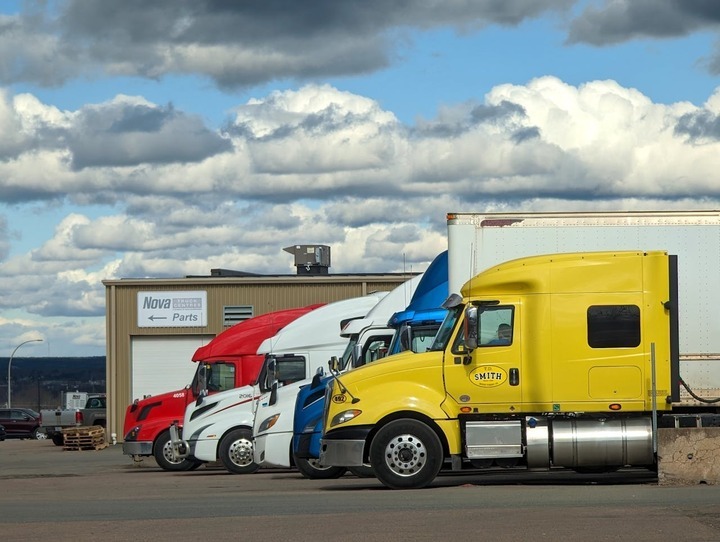
Trucking Claims Uncomplicated: The Secrets to Speedy & Stress-Free Settlements
Key Takeaways:
-
Efficient claim resolution for trucking businesses relies on initiating claims immediately, securing thorough and complete documentation, defining internal workflows, leveraging third-party support, and tracking performance metrics.
-
Filing a trucking claim the right way involves immediate incident reporting, collecting and submitting thorough evidence (including photos and delivery documents), documenting vehicle and cargo condition, completing accurate claim forms, and maintaining communication with all parties.
-
Best practices for trucking claims that keep businesses ahead include proactive risk training for drivers, clear incident reporting protocols, regular reviews of insurance policies, and using a centralized claims management system.
-
Overcoming common trucking claim challenges like unclear liability and missing documentation requires early fault clarification, thorough staff training on documentation standards, improved communication with third-party administrators, and utilizing cargo monitoring technology.
-
Structured commercial truck claims management, whether for general liability or cargo claims, necessitates defined escalation paths, standardized claim checklists, ongoing staff training, and leveraging external expertise like a third-party claims administrator for objectivity and speed.
When a trucking incident occurs, time is money—and delays in claim resolution can severely impact operations, revenue, and customer trust. Whether you're navigating cargo claims management, general liability, or broader commercial truck claims management, having a system built on clarity and speed is essential. That’s why understanding the best practices for trucking claims is the key to achieving fast, stress-free resolutions.
This guide explores how trucking businesses achieve efficient claim resolution, how to overcome common trucking claim challenges, and what it takes to establish a repeatable, reliable system for efficient trucking claims handling—whether you're managing claims in-house or working with a third-party claims administrator.
How Do Trucking Businesses Achieve Efficient Claim Resolution?
Efficient claim outcomes are rarely the result of chance—they come from following proven systems, consistent documentation, and smart collaboration. For claim resolution for trucking businesses, the following steps are essential:
-
Initiate the claim immediately: Delays in starting the claim can lead to disputes or missed filing deadlines.
-
Gather comprehensive documentation: From dash cam footage to bills of lading, the more evidence collected upfront, the smoother the resolution.
-
Define internal workflows: Know who handles what—from fleet managers to safety officers—to reduce confusion and turnaround time.
-
Leverage third-party support: A third-party claims administrator can streamline processes, reduce errors, and support documentation management.
-
Track performance metrics: Monitor cycle times, approvals, and settlements to improve and forecast future outcomes.
By following these steps, trucking businesses not only reduce delays but also create a process that supports consistent, fast, and fair outcomes.
How to File a Trucking Claim the Right Way
Knowing how to file a trucking claim is half the battle when it comes to quick resolution. While every claim is unique, certain steps apply across all scenarios, including general liability, cargo claims management, and commercial truck claims management.
Here's how to file a trucking claim effectively:
-
Report the incident immediately to your internal claims team or third-party claims administrator.
-
Collect and submit evidence, including damage reports, witness statements, delivery documents, and time-stamped photos.
-
Document vehicle and cargo condition, especially for cargo damage or losses tied to cargo claims management.
-
Complete the appropriate claim forms, ensuring accuracy and full disclosure.
-
Maintain communication with all parties, including adjusters, vendors, and legal support if necessary.
A well-executed filing process improves the chances of a smooth, quick claim resolution—and reduces the risk of disputes or denials.
Best Practices for Trucking Claims That Keep You Ahead
Applying the best practices for trucking claims across your fleet operations can eliminate unnecessary friction and save hours in processing and back-and-forth follow-ups.
These practices include:
-
Proactive risk training for drivers to minimize avoidable incidents.
-
Clear protocols for incident reporting, outlining responsibilities and timelines.
-
Regular reviews of insurance policies and claim procedures to align with legal requirements and operational goals.
-
Using a centralized claims system to manage all claims in one place, with access for both internal and external stakeholders.
These practices don't just improve speed—they enhance transparency, accuracy, and team accountability, ensuring that your claim resolution for trucking businesses remains efficient and repeatable.
Overcome Common Trucking Claim Challenges
Even with good planning, common trucking claim challenges can delay resolutions and increase operational headaches. These might include unclear liability, missing documentation, or disputes over cargo condition.
How to overcome the most common trucking claim issues:
-
Clarify liability early through detailed driver reports and incident analysis.
-
Prevent documentation gaps by training staff on submission standards and timelines.
-
Improve visibility by coordinating regularly with your third-party claims administrator for updates and checkpoints.
-
Use cargo monitoring technology to support your cargo claims management strategy with data-backed proof.
Identifying and resolving these roadblocks early is key to keeping your trucking claims pipeline clear and efficient.
Commercial Truck Claims Management: Why Process Matters
Whether you’re managing general liability, cargo claims, or fleet-specific risks, structured commercial truck claims management is essential to staying compliant and competitive.
A strong claims process includes:
-
Defined escalation paths when claims become complex or contested.
-
Standardized claim checklists for different claim types.
-
Ongoing training for in-house staff to stay current on regulations and industry standards.
-
Support from external experts, like a third-party claims administrator, who brings objectivity and speed.
When process and expertise come together, your business benefits from fewer delays, stronger recoveries, and a better overall claims experience.
Secure Fair Compensation in Truck Accident Claims
For any trucking company, one of the most critical goals in the claims process is securing fair compensation—especially in the event of truck accident claims or cargo-related damage claims. Achieving this begins with a clear understanding of liability, the proper documentation of visible damage, and consistent communication throughout the entire process.
A well-prepared claim includes:
-
Accurate damage assessment performed at the scene or shortly after delivery.
-
Identification of all liable parties, whether it's another driver, a shipper, or a loading contractor.
-
Collaboration with insurance adjusters or a third-party claims administrator to ensure timely review and impartial evaluations.
Prioritizing accuracy and transparency throughout the claim lifecycle helps your trucking company secure the compensation it deserves—without unnecessary delays or disputes.
Build a System for Successful Claims and Long-Term Efficiency
Long-term success in claims handling isn’t just about resolving the next incident—it’s about building a process that delivers successful claims over time and supports effective freight claims management across your entire operation.
This includes:
-
Routine claims audits to identify performance gaps.
-
Training programs for drivers and dispatchers on recognizing visible damage and preserving evidence.
-
Working closely with insurance adjusters and third-party administrators to align on expectations and reporting standards.
By focusing on consistency, communication, and accountability, your trucking company creates a strong, repeatable system that handles claims efficiently and positions you for long-term resilience and cost control.
Drive Smarter Claims Solutions with Veritas!
Take the stress out of claim handling with Veritas. As a trusted third-party claims administrator, our commercial truck claims management services are designed to streamline the entire process—from incident reporting to final resolution—ensuring fast, accurate outcomes for your business.
Contact Veritas today to simplify your claims process and keep your fleet moving forward.

